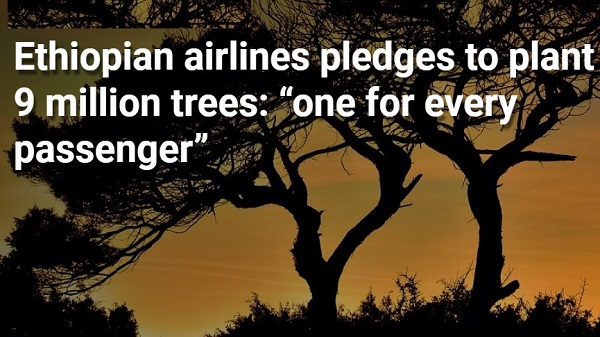
ADDIS ABABA (UN Environment)–UN Environment signed a memorandum of understanding (MoU) with Ethiopian Airlines, focusing on sustainability in the airline business. As part of the ‘Plant one tree for every passenger flown’ project, Ethiopian Airlines will plant 9 million trees across various areas of Ethiopia.
Exploring innovative ways in which the airline industry can be combined with a sustainable business outlook, UN Environment and Ethiopian Airlines have forged a partnership that will focus on greening the airlines operations.
The MoU, signed in Addis Ababa this week, outlines several action areas to promote sustainability, most notably the development of the ‘Plant one tree for every passenger flown’ project, in collaboration with UN environment’s ongoing REDD+ program in Ethiopia. The objective of the project is to plant 9 million trees in the name of Ethiopian Airlines in different regions of Ethiopia.
“We’re delighted to launch one of the first such agreements of its kind, with Ethiopian Airlines really raising the bar on environmental responsibility and green business,” said Erik Solheim, Head of UN Environment. “This sends a strong, positive message across the aviation sector.”
Other areas of collaboration include:
- Greening Ethiopian Airline business through the provision of training on sustainable consumption and production, integrated waste management, hazardous chemical treatment and capacity development on air quality monitoring.
- Development of environmental awareness raising materials for use in- flight entertainment.
- Support for the Ethiopian Aviation Academy, with the introduction of a course on the UN Environment Sustainable Consumption and Green Economy Program.
“Because UN environment and Ethiopian Airlines share common goals and objectives […] we wish to collaborate in areas of mutual concern,” said Juliette Biao, head on UN Environment’s regional office for Africa.
The signing of the MoU took place in the margins of the African Civil Aviation Biofuel Summit held in the Ethiopian capital this week, and follows the adoption of the “Single Air Transport Market” by African nations last January.
Source: UN Environment
